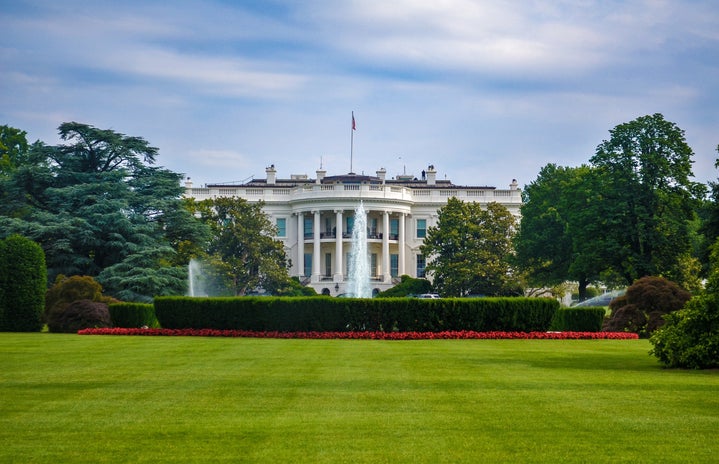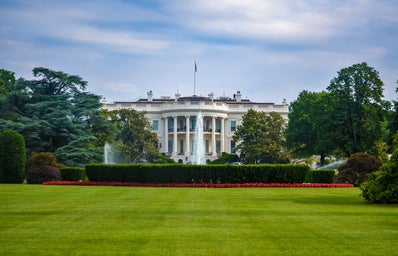Congress shall make no law respecting an establishment of religion, or prohibiting the free exercise thereof; or abridging the freedom of speech, or of the press; or the right of the people peaceably to assemble, and to petition the Government for a redress of grievances.
These 45 words added over 200 years ago to our Constitution provide the entire basis of the rights of American citizens. They were meant to guarantee forever the democratic rights of the people, and form the foundation of the idea that here in the United States, you can be whoever you want, and express yourself however you want. These words are arguably the most important words ever written into law.
Why then, does it seem like college students have forgotten about them?
In a recent survey by the Brookings Institution, college students were asked a series of questions on First Amendment rights especially involving freedom of expression. These results were, to put it simply, quite alarming. For example, when asked if the First Amendment protects “hate speech,” only 39% of respondents said yes, and 16% didn’t know.
The First Amendment protects hate speech; as it was written, the amendment states that no law should be made abridging the freedom of speech. Of course, over the years narrow categories of speech that falls outside constitutional protection have been established, such as direct incitements to violence, libel, and certain restrictions on time, place, and manner, but the content of the speech (such as speech that many would call hate speech) cannot be used to justify why it is not protected.
Another survey result was in response to a question about presenting counterpoints. Respondents were asked whether a public university hosting a speaker considered by some to be offensive is legally required to host a speaker presenting a counterpoint. Clearly, there is nothing in the First Amendment about equal representation of viewpoints. And yet, 65% of respondents believed that yes, the university is legally required to host another speaker.
Of course, the presentation of counterpoints is, in essence, a good thing. One of the main reasons for the First Amendment is the concept of the “marketplace of ideas”: if you allow absolute freedom of speech, different ideas will be presented to the citizen “consumers,” and they will go along with the idea that appeals to them the most. Thus, ideally society improves as different ideas battle it out until the best idea prevails. However, government interference in the form of requiring different viewpoints is in complete opposition to this democratic process. If an individual wants to present an alternate “product” to the “consumers,” they have every right to do so. But the government, even in the form of a university, cannot step into this free market.
A final survey result I want to discuss is perhaps the most alarming. Students were asked if it would be acceptable for a student group to use violence to stop a controversial speaker from speaking. 19% of respondents said yes. That’s a whopping 1 in 5 people who are so against hearing (or even just sharing a campus with) controversial remarks that they would support violence.
I understand that it’s difficult to hear ideas that are radically different from your own. I understand that sometimes certain speakers can say words that are absolutely hateful, words that may be personally offensive to extreme levels. But shutting down this speech, especially through violence, is not the way to go. Let other people air out their dirty laundry. If someone says something detestable, let them say it for the whole world to hear. Public exposure may be the best way to kill speech that you object to. As Samuel Johnson was quoted as saying the same year the First Amendment was ratified: “Every man has a right to utter what he thinks is truth, and every other man has a right to knock him down for it.”
It’s important to note that in the Brookings survey, Democrats overwhelmingly were less permissive of controversial ideas than Republicans. As a registered Democrat, I am disappointed that the party I identify with tolerance, compassion, and open-mindedness would be so ready to crush the expressions of those they disagree with. Particularly in the age of a president who claims that “Any negative polls are fake news,” and that NBC should have its license revoked for a story he doesn’t like, the uninhibited rights of freedom of speech and of the press are more important than ever. Even if we are in a time where speech we find despicable is much more prevalent than we would like, there is never a time to try to shut this speech down. Instead, speak back. If nothing in the marketplace of ideas appeals to you, go and add your own product. The Founding Fathers gave you the right of near absolute freedom of expression in this country.
Use it.
All photos public domain and courtesy of Pixabay.com.
Views put forth in this piece are solely those of the author and not those of Her Campus Cal Lutheran or Her Campus Media.



